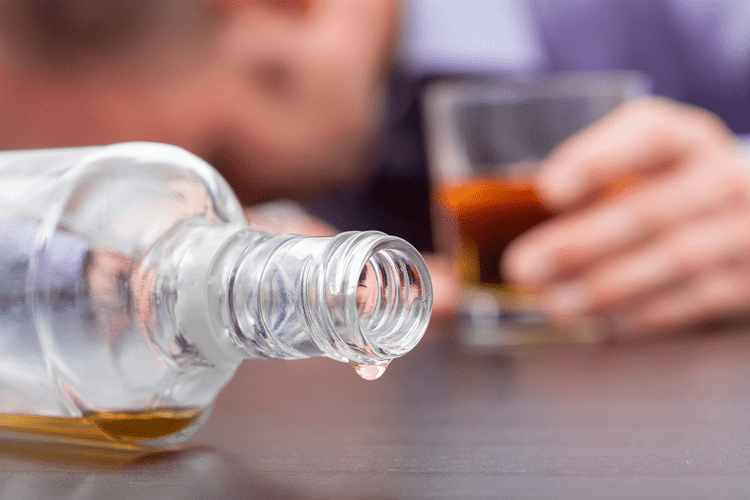Those who suffer from sleep disturbances due to restless leg syndrome (RLS) are often recommended to increase magnesium consumption. For a natural boost, consider eating more green leafy vegetables, legumes, nuts, seeds, whole grains, meats, poultry, and fish, as they are all rich in this micronutrient. In general, maintaining a well-balanced diet, with an emphasis on lean proteins and diverse plant foods, can go a long way to enhancing your sleep, night-to-night. The ultimate guide to sleep better tonight, plus why it’s so important for health and wellness. Overall, if you’re consistently having trouble falling asleep or staying asleep, talk with your doctor about identifying and treating the source of your sleep issues.
How to prevent disrupting sleep after drinking
- Alcohol has biphasic effects, meaning some of its impacts have two phases, such as stimulating and sedating.
- Valerian particularly shows promise for alleviating insomnia and improving sleep quality among menopausal women.
- Drinking alcohol (from one to six standard drinks) around 30 to 60 minutes before bedtime means that alcohol levels in the breath and blood peak around lights-out time, according to the National Institute on Alcohol Abuse and Alcoholism.
- Experts recommend that adults aged 18–60 get at least 7–9 hours of sleep each night (1).
- One study found that 30% of postmenopausal women who took a 530 mg valerian capsule twice a day for 4 weeks reported improvements in sleep quality (29, 30).
- In one study in 75 people with chronic insomnia, participants reported significant improvements in sleep quality after self-administering 3 intranasal drops of either violet or pure almond oil nightly for 30 days (65).
Bad sleep hygiene can keep you from getting the restful sleep you need to maintain good mental and physical health. By identifying bad sleep habits and sleep myths, you set yourself on the right track for restorative sleep that actually makes you wake up feeling refreshed. Some sleep-promoting drinks are high in compounds like tryptophan and melatonin, while others encourage sleep by easing https://centraltribune.com/top-5-advantages-of-staying-in-a-sober-living-house/ pain and discomfort in the evenings. Thus, almond milk is also high in compounds that may help you fall asleep and stay asleep. Each of the ingredients in golden milk is generally considered safe. Still, individuals taking certain medications, including blood thinners and drugs to reduce stomach acid and manage diabetes, should exercise caution with turmeric and ginger (63, 64).

Myth: Leaving a TV on before bed can help you sleep
According to Google Trends, online searches for collagen have steadily increased since 2014. Talk with your health care team about eating a variety of foods rich in potassium, fiber, and protein and lower in salt (sodium) and saturated fat. For many people, Sober House making these healthy changes can help keep blood pressure low and protect against heart disease and stroke. But if your nightmares are getting in the way of your ability to enjoy your life, a healthcare provider can help get you on the right track.
How does alcohol affect sleep apnea?
Our editors and medical experts rigorously evaluate every article and guide to ensure the information is factual, up-to-date, and free of bias.

Breathing problems — Since alcohol’s sedative effect extends to your entire body, including your muscles, it may allow your airway to close more easily while you’re asleep. This can greatly increase the risk of sleep apnea especially if you drink within the last couple of hours before bedtime. Since using alcohol routinely to fall asleep leads to disrupted sleep, people can experience chronic daytime sleepiness. That can then create an unhealthy cycle of using stimulants such as caffeine to stay awake, then self-medicating at night with alcohol to fall asleep again, according to the Sleep Foundation. Yules, Freedman, and Chandler (1966)studied three young non-alcohol dependent, men over 5 nights of drinking, with 1g/Kgethanol administered 15 minutes before bedtime. Yules,Lippman and Freedman (1967) studied four young men over three or five nights ofdrinking with 1 g/Kg ethanol administered 4 hours before bedtime.
- Sleep apnea is a common sleep disorder that causes breathing disruptions during sleep.
- Even in moderate amounts, alcohol consumed in the hours before bedtime can cost you sleep and leave you feeling tired the next day.
- A 2019 study showed that individuals who sleep for under 6 hours each night have a 20% higher chance of heart attack than individuals who sleep between 6 and 9 hours.
- The rightpanel (KC-) show the result of averaging responses not including K-complexes.
- Conversely, a chronic lack of sleep can leave you with a host of problems.

